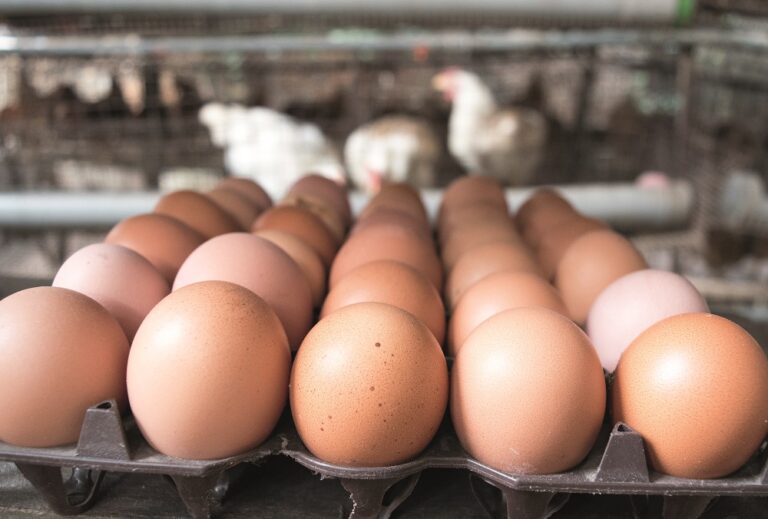Egg producers claim they’re being short-changed by bad contracts. Now they’re going public with their demands.
The British Free Range Egg Producers Association (BFREPA) is seeking to reform supply contracts between farmers and packers after lawyers wrote a report calling some agreements ‘grossly imbalanced in favour of buyers’.
BFREPA commissioned a team of legal experts from Birketts LLP to examine contracts between producers and nine major egg packers and found numerous areas they say should be improved.
They include pricing and payment terms – which vary massively between agreements – and termination which, in some cases, is weighted entirely towards packers.
BFREPA chief executive Robert Gooch says he has opened up a dialogue with 41 packers outlining the organisation’s areas of concern and asking for feedback.
Following consultation BFREPA will deliver on its pledge to draw up model contracts which will be available to its members to enable them to secure fairer terms when negotiating with customers.
“Producers have a right to a fair contract which gives them confidence to continue to invest in their businesses and produce a great product,” says Gooch.
“Our findings are that contracts are very one sided in favour of the buyer, which is to be expected when it is the packer offering the terms.
“Our end game is to arm free range producers with a model contract which stands up to legal scrutiny. This can be used as a barometer for fairness when producers are offered contracts in the future.”
The consultation will close in February when work will begin on drawing up the model contracts. The organisation expects to hear back from packers in the second week of February.
Birketts LLP found most agreements include similar key provisions spanning important areas such as quality standards, compliance with regulation and exclusivity of supply.
But it has recommended areas for improvement, including:
Exclusivity – agreements were found to be quite onerous in terms of the obligations being placed on producers. Strict terms are imposed.
Codes of practice – one set of agreed codes and regulations would be better than the current variation of terms shown from one agreement to another.
Pricing and payment – title to the eggs passing to the buyer on collection was seen as very one-sided and would be improved being held by the producer until payment has been received. Payment terms vary from two weeks to one month and there is a lack of consistency on price.
Grading– how eggs are graded and priced is solely at the discretion of the buyer. The producer should have the right to agree the grading and prices of the eggs it supplies.
Indemnities – producers are asked to provide a number of warranties to the buyer and also to indemnify against certain aspects of the eggs, and for breach of contract. It is considered that buyers should be required to do the same.
Duration and termination – contracts vary in terms of the length of the notice period. The rights of each party to terminate the agreement should be consistent in any agreement entered into – at the moment it is not.
The report has come at an already difficult time for egg producers. In January, some egg packers lowered the price they are paying producers for free range eggs in reaction to an oversupply in the market.
“The market has been in an oversupply situation and we have been warning that further pressure would be put on prices,” says Gooch. “Over the past few years BFREPA has been providing members with pullet placement and planning data updates with regular warnings of overproduction leading to a likely impact on prices.
“Nonetheless it will be a bitter pill to swallow for many producers who were hit with rocketing feed bills last year while the egg price steadily eroded.
“This makes the work we are doing to introduce model contracts even more important.
“We need balanced, water-tight agreements which not only provide more protection for producers against market volatility but also encourage packers and retailers to act more responsibly in their contract offers to producers.”
For more than two years BFREPA has warned about oversupply to members and the potential for price cuts as a result. The organisation has campaigned for more packers to offer feed-price linked tracker contracts which helped at least 30% of producers avoid price cuts.
The producer organisation is working to establish a model contract by the end of March and will set out balanced terms for producers to enter into with packers and says it will continue to encourage consumers to swap large eggs for medium and mixed weight boxes in a digital and media campaign.


